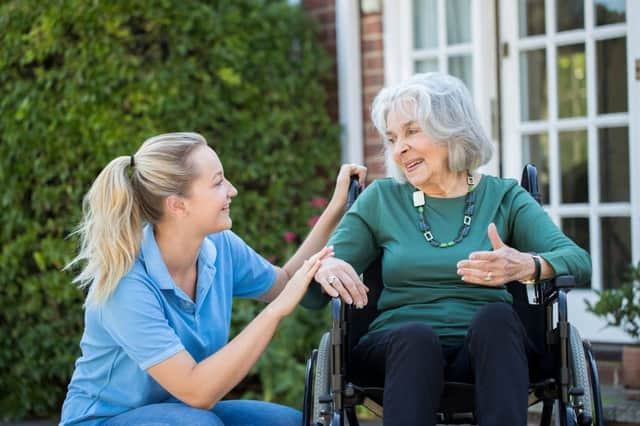Care home residents in Scotland allowed designated visitors during Covid outbreaks


The Scottish government has announced care home residents can name a relative or a friend to visit, even if there is a Covid outbreak in the home.
Kevin Stewart, the social care minister, has confirmed designated visitors can attend care homes even when there are Covid-19 infections to maintain "meaningful contact" for residents.
Advertisement
Hide AdAdvertisement
Hide AdUsually, care homes suspend visiting from relatives or friends following a coronavirus outbreak - defined as two or more linked cases within a fortnight.
'Residents were cut off from loved ones'
But this new guidance means the named relative or friend is still able to visit the resident whilst the outbreak is occurring.
Speaking about the changes, Mr Stewart said “Throughout the pandemic, our overriding priority in care homes has been to safeguard and protect staff and residents from infection but at times that meant that residents were cut off from their loved ones, which we know has caused anguish and distress for many.
“The proposal for a named visitor will provide continuity of meaningful contact for care home residents in managed Covid-19 outbreak situations, helping to protect residents’ wellbeing in parallel by allowing visiting in a safer way, rather than automatically suspending routine visiting during an outbreak."
Advertisement
Hide AdAdvertisement
Hide AdHe also reaffirmed the Scottish government's commitment in introducing Anne's Law, called for by Care Home Relatives Scotland, which enables care home residents to choose who comes in and looks after them.
He added a consultation “seeking views on how best we might make it work in practice” would be published shortly.